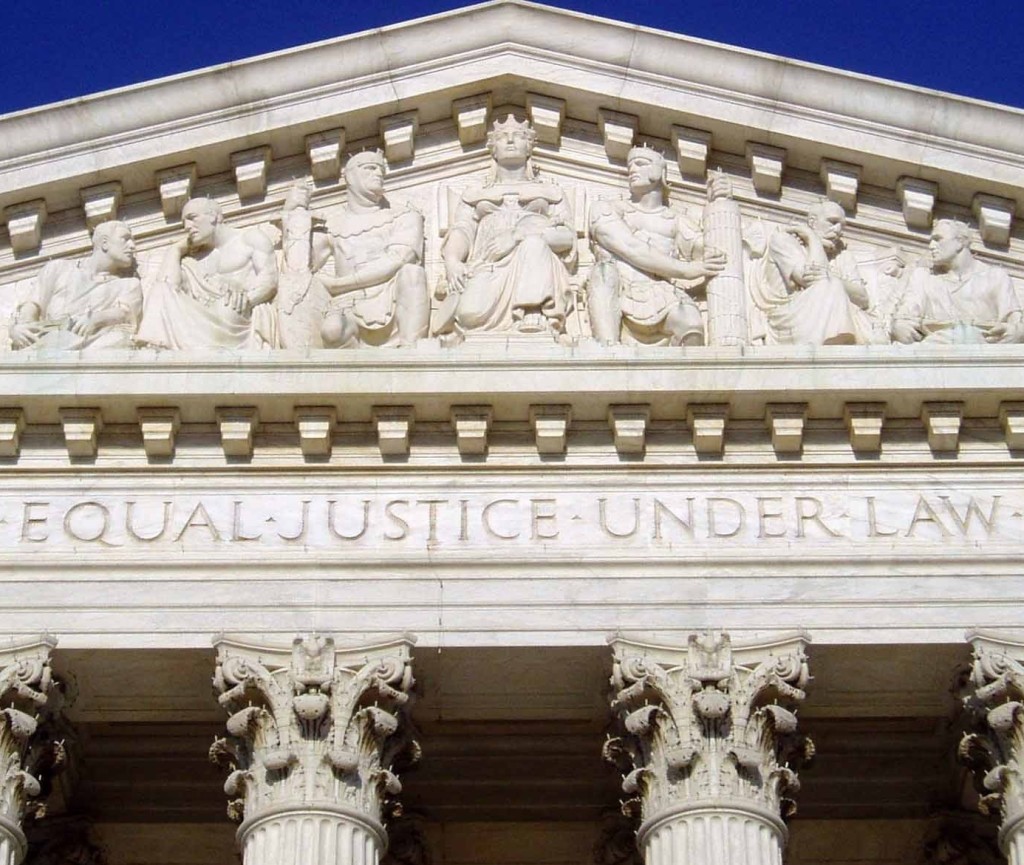"The Supreme Court Is Being Hypocritical," FTC Writes in N.Y. Times Op-Ed
By GABE ROTH / Oct. 11, 2016 / http://nyti.ms/2dRkpnK
 The Supreme Court’s motto may be “equal justice under law.” But sometimes it seems more like “do as we say, not as we do.”
The Supreme Court’s motto may be “equal justice under law.” But sometimes it seems more like “do as we say, not as we do.”
Consider Williams v. Pennsylvania, a case the court heard in February concerning whether a state judge should have recused himself from a capital case in which he had an earlier involvement. At one point during the hearing, Justice Elena Kagan, who participated in both Supreme Court lawsuits concerning the Affordable Care Act despite having served as solicitor general in the Obama administration, asked what would constitute “significant involvement” in a case — i.e., enough to require a recusal.
The answer to that question may not be obvious. But surely Justice Kagan’s experience in the Obama administration constituted “significant involvement” in the Affordable Care Act cases. In the end, a majority of justices, including Justice Kagan, ruled in Williams v. Pennsylvania that the judge who refused to recuse himself should have stepped aside.
So went another case in what I call the court’s self-referential docket. Each year, the justices hear a handful of suits that have parallels with how they act as stewards of their institution. But instead of changing their own practices in light of their holdings in these cases, the justices too often carry on as before, as if they can play by their own rules when it comes to transparency and accountability.
In recent years there have been a number of such cases concerning money and the potential for judicial corruption. In 2015, for example, the court ruled that the Florida Bar was within its rights to discipline a judge for personally soliciting campaign contributions. The majority opinion, delivered by Chief Justice John G. Roberts Jr., held that there was a “vital state interest in safeguarding public confidence in the fairness and integrity” of the nation’s judges.
But if there is a vital interest in the integrity of the court, why was Justice Stephen G. Breyer allowed to rule on a case last fall in which his wife held about $33,000 worth of stock in a company whose subsidiary was one of the litigants? Or how about the $400,000 worth of shares that Chief Justice Roberts owned in Intel, Microsoft and Hewlett-Packard, which all signed amicus briefs supporting Walmart in a 2011 class-action lawsuit before the court? (Chief Justice Roberts voted in favor of Walmart in that case.)
Other cases have concerned the First Amendment’s protection of speech. In May, the Supreme Court considered whether to review a circuit court’s decision that upheld the conviction of a Maryland man for carrying a placard in protest in the middle of the Supreme Court’s plaza. A lower court had deemed unconstitutional part of the 1949 law under which the man was prosecuted, which had banned protests in that plaza, but the circuit court overruled the decision. The justices decided not to hear the case, effectively condoning an anti-protest buffer zone in front of their courthouse — even though the Supreme Court has deemed anti-protest buffer zones around abortion clinics unconstitutional.
Another ruling, from 1991, still looms over the court. In that case, Gregory v. Ashcroft, the court upheld a provision of Missouri’s Constitution requiring state judges to retire at 70. Justice Sandra Day O’Connor, writing for a majority that included Anthony M. Kennedy and Antonin Scalia, offered the following observation: “It is an unfortunate fact of life that physical and mental capacity sometimes diminish with age.” Of course, Justice Scalia remained on the bench nearly a decade past his 70th birthday, and Justice Kennedy, who began his 30th term on the court this month, turned 80 over the summer.
Just a week into the current term, there has already been a self-referential case. In Salman v. United States, argued on Oct. 5, the justices looked to reconcile two appeals courts’ differing standards for what constitutes insider trading. Though the justices presumably don’t give any thought to their investment portfolios when hearing cases, ample research has shown that their decisions do affect financial markets. Yet three justices — Justices Roberts, Breyer and Samuel A. Alito Jr. — maintain holdings in individual stocks and apparently do not place them in the types of investment accounts or blended funds that would shield them from any appearance of benefiting financially from their legal decisions.
If the court wants to regain some of the respect it has lost in recent years, the justices should consider how, by acting more consistently with their own rulings, they could help build a more open and accountable institution.